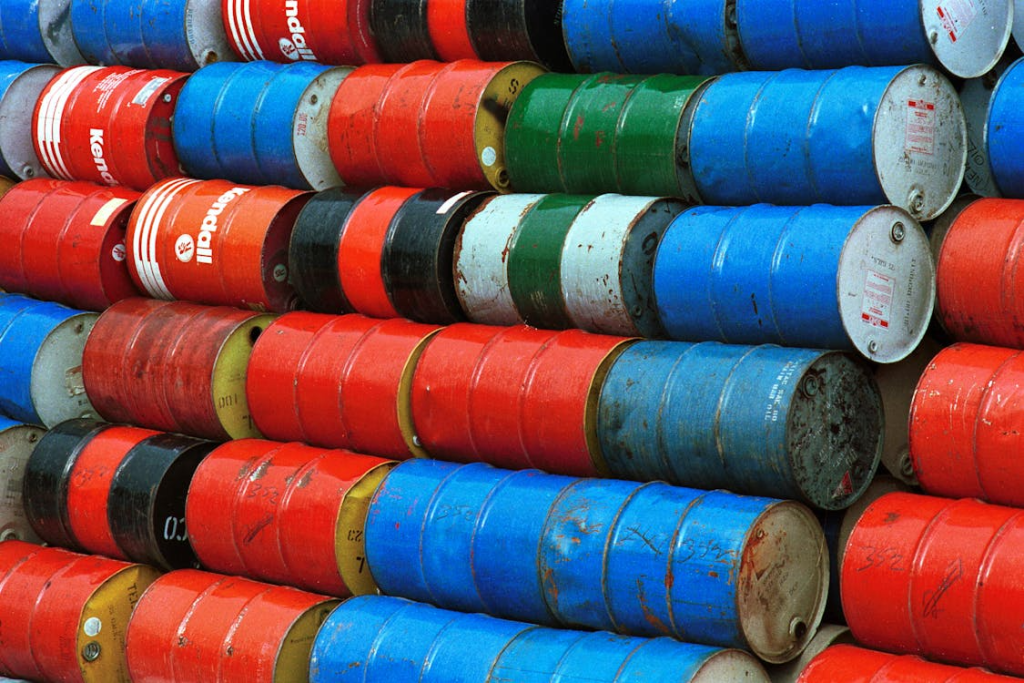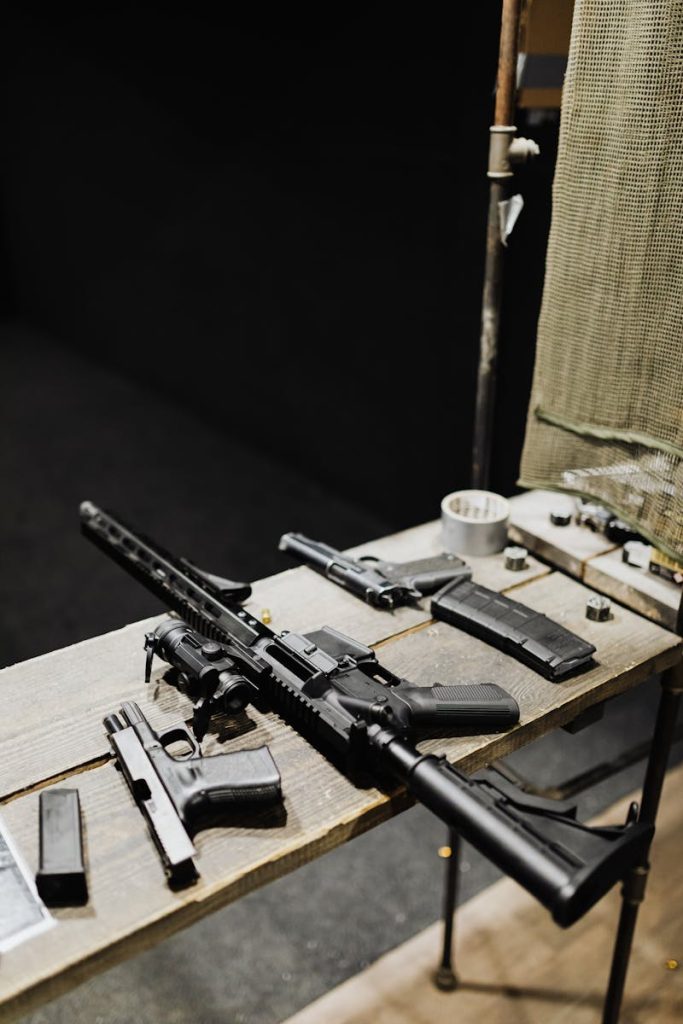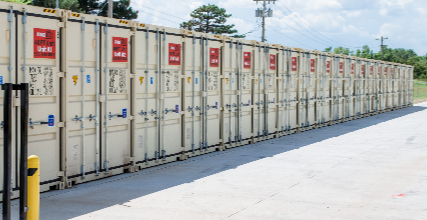There Are a Few Things Not to Put In Storage. Here’s Why!
Storage units can feel like the perfect solution when you’re short on space at home or juggling a move, especially when you’re in a rush to get things sorted. But before you dive headfirst into organizing your stuff, let’s hit pause and talk about what not to put in a storage unit.
Why? Because the last thing you want to want is to go through the trouble of packing and organizing, only to have the storage provider say, ‘Sorry, can’t keep that here,’ leaving you to scramble for plan B. Frustrating, right?
Let’s skip that chaos altogether. We’ve got your back with a detailed guide to help you move safely and securely. It covers everything from prohibited items to sensitive items you’ll want to double-check before storing. Some of these things might seem like common sense, but others? Total head-scratchers. That’s why a handy checklist can save you from surprises.
So, without further ado, let’s dive into what you can’t store in most storage units.
Prohibited Items in Storage Facilities
When it comes to storage units, there’s no such thing as “anything goes.” Storage companies have strict rules to protect their facilities, staff, and your belongings, so it’s crucial to know what’s off-limits before you start packing.
Hazardous Materials
Anything that can explode, ignite, or ooze toxic substances is an absolute no-go in storage units. These items aren’t just dangerous, they’re a liability for the entire storage facility. Here are some common hazardous materials you’ll need to leave behind:
- Gasoline, propane, oil, and grease: Highly flammable and risky in enclosed spaces;
- Chemicals, cleaners, and paint: These can leak or emit harmful fumes;
- Fireworks and explosives: Not the kind of surprise anyone wants in a storage facility;
- Moonshine and its brewing chemicals: Yes, even your bootlegging ambitions are banned.
It’s always a good idea to check the specific list of prohibited materials with your storage facility. Better safe than sorry!

Perishable Items
While a storage unit might seem like a perfect place to stash away extra food—especially those canned foods you’ve been hoarding just in case—think twice before you start piling up your pantry. Canned foods, though less perishable, can still attract insects and rodents, leading to unwanted damage.
Fresh food or pet food is even worse. It can rot, creating nasty odors that will quickly spread across the entire storage facility.
Even seemingly harmless items, like scented candles, can cause issues. Over time, in an enclosed space, they can melt in extreme temperatures or attract pests, turning your storage unit into a sticky, smelly mess.
So, it’s best to leave perishable goods at home for the safety and comfort of everyone.
Illegal and Stolen Goods
This one might seem obvious but it’s worth saying: storage units are not hiding spots for stolen property or illegal items. For starters, the first reason why is that self-storage facilities are typically well-monitored with cameras, access logs, and on-site staff. Also, if something seems suspicious, employees won’t hesitate to call the police. Plus, any evidence of illegal activity—like video footage—can easily make it into the hands of law enforcement.
In short, avoid storing anything that isn’t allowed. It’s definitely not worth the hassle! Storage units are here to make your life easier, not add extra stress.
By knowing what you can and cannot store in a self-storage unit, you’ll save yourself from unnecessary headaches and keep your move running smoothly.
Animals and Pets
It may seem like a no-brainer, but it’s important to emphasize that pets should never be stored in a unit. Not only is it inhumane and unsafe, but it also violates storage facility policies.
Animals require proper care, attention, and a proper living environment—none of which are provided by a storage unit.
If you need a safe space for your pets while moving, consider pet sitting or leaving them with a trusted friend or family member. Their well-being should always be a top priority!

Plants
Plants may seem like an innocent thing to store, but they pose several risks. The lack of light, poor climate control, and confined space make it impossible for plants to thrive. In fact, they can quickly deteriorate, attract pests or mold, which is bad news for everything else in storage.
So, instead of stashing your beloved greenery in a closed storage space, try a friend’s house to keep them healthy. Your plants will thank you later!

Restricted Items in Self Storage Units
Not everything is black-and-white when it comes to what you can keep in a self-storage unit. Some items fall into the restricted category, meaning they might be allowed under certain conditions often dependent on local laws, facility policies, and specific requirements.
Let’s break it down and so you know exactly what to expect.
Firearms and Ammunition
Firearms, ammunition, and other weaponry are a unique category when it comes to self-storage and require careful consideration. Here’s what you need to know:
- Local and facility rules matter – While some states, like Oklahoma, are more permissive regarding firearm storage, it’s crucial to check both local regulations and the policies of your storage facility. Here’s our detailed guide for storing firearms.
- Preparation is key – If firearms are allowed, they must be stored responsibly. This includes cleaning, using trigger locks, and controlling moisture to prevent rust.
- Separate ammunition storage – Always store ammunition in a locked, hard case away from firearms to maximize safety.
Items such as flame throwers, hand grenades, land mines, mortal shells, bazookas, or nuclear bombs are strictly prohibited for obvious reasons.

With proper preparation and a little extra care, you can store firearms and ammunition safely and responsibly.
As mentioned, here in Oklahoma, the rules for storing firearms are pretty relaxed. So, whether you have a growing collection or just a few firearms you’d rather not keep in the house, feel free to store them in our storage facility in Ponca City!
Just remember, when in doubt, ask questions, follow the rules, and never take shortcuts with safety.
Vehicles and Equipment
When it comes to storing vehicles and equipment, there are a few rules to keep in mind.
Only fully registered, insured, and operable vehicles are allowed in self-storage units. Whether it’s a boat, RV, trailer, motorcycle, car, or truck, you’ll need to provide proof of registration and a valid driver’s license.
Each type of vehicle may have its own specific requirements, so it’s always a good idea to check with your storage facility before making arrangements.
Read our guide about storing motorcycles if you need help to prepare it for storage.
For example, RVs and boats may require extra storage space, or certain vehicles might need to be stored in specific conditions to ensure safety.
Just be sure your vehicle is in good working order, properly insured, and documented, and you’ll be all set for storage!
Sensitive and Valuable Items
When it comes to storing electronics, antiques and priceless treasures, a little extra care is needed to ensure they remain in good conditions. These items aren’t your typical “pack and stack” fare, and they may require more attention to detail than other belongings.
Electronics and Antiques
Electronics and antiques can be quite sensitive to temperature fluctuations, humidity, and general wear and tear. If you need to store those items, a climate controlled storage unit is often your best bet.
These units maintain a consistent environment to protect your electronics from overheating or freezing and to keep your antiques from degrading over time.
Priceless and Irreplaceable Items
For truly priceless or irreplaceable items, consider keeping them close by rather than storing them in a self-storage unit. Even the most secure facilities can carry risks when it comes to high-value items and there may be limited liability for the storage company. If it’s something that can’t be replaced, such as family heirlooms or valuable artwork, a safe deposit box or specialized storage option may offer better protection.
Storage Unit Considerations
When choosing a storage unit, it’s essential to consider both the type and size of the unit to ensure your belongings are stored safely and securely.
Two most important factors to think about are whether you need a climate-controlled unit and how much space you’ll need.

Climate-Controlled Storage Units
If you’re storing sensitive items like electronics, antiques, or furniture, climate controlled storage units are your best option. These units regulate temperature and humidity, offering protection against the harmful effects of extreme heat, cold, or moisture.
Whether it’s protecting books from warping, keeping electronics in working order, or ensuring your furniture stays in top shape, climate-controlled units are perfect for those things you want to protect from the elements.
Storage Unit Size and Type
The size and type of storage unit you choose can directly impact how much you can store and how it should be packed. For larger items, like a boat or a vehicle, you’ll need ample space, while smaller items might only need a compact item. It’s important to match the right unit to your needs—whether it’s a basic unit, a climate-controlled one, or a specialty space for larger items. Before committing, check with your storage facility to find the best option available.
Alternative Storage Options
If you’re looking for storage options beyond the usual climate-controlled units, there are some alternatives that may suit your needs.
- Outdoor Storage – Perfect for items that don’t require temperature control, like boats, RVs, equipment, or extra vehicles. Check with your storage company to see what options are available.
- Specialized Storage Solutions – For items like fine wine or artwork, specialized solutions are designed to keep them in optimal condition. Wine storage maintains the right temperature and humidity, while art storage offers climate control and protection from light exposure.
Whatever your storage needs, make sure to explore the options that best protect your belongings.
Final Thoughts
Storing your items safely is all about planning ahead and knowing exactly what you can and cannot keep in a storage unit. From hazardous materials to perishable foods and illegal items, it’s crucial to be mindful of the rules to avoid any unwelcome surprises down the road.
Whether you’re storing firearms, vehicles, sensitive electronics, or priceless heirlooms, each category comes with its own set of guidelines to ensure everything is protected.
With the right knowledge and preparation, you can safely store your belongings without stress or confusion, knowing they’re in good hands.
For secure and affordable storage, My Storage Box offers 24/7 access, video monitoring, and gated entry to ensure your items are safe. With our storage units, you’ll know your things are in a secure place, and you won’t stress about them!
Click the link below to get started, where you can reserve a unit and make monthly payments. You can also call us at (580) 300-3006. Talk to you soon!
